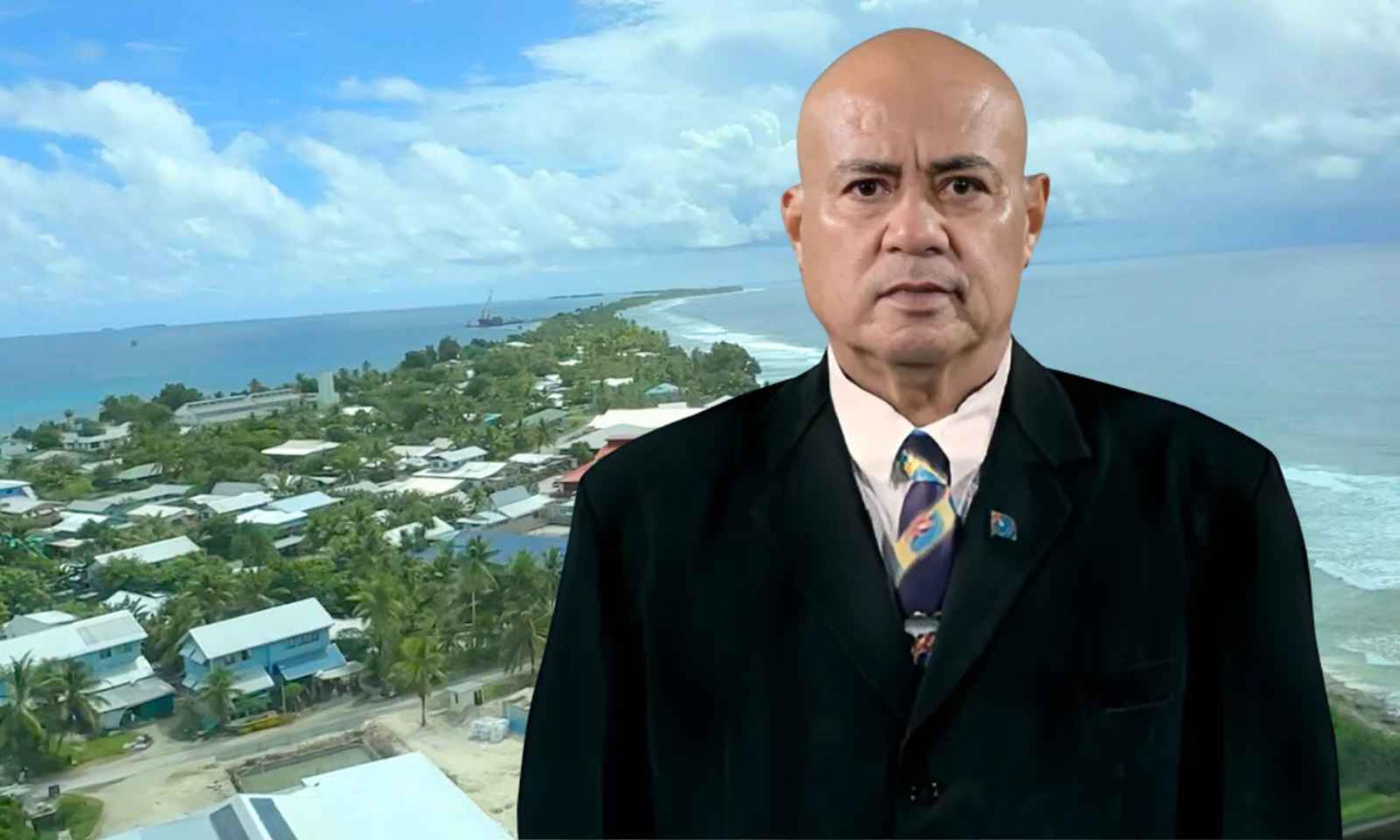

Apulu Reece Autagavaia says cutting targeted support ignores systemic inequality, as Dr Will Flavell defends the services that helped him succeed while Dr Parmjeet Parmar pushes to scrap them.
Photo/ACT/ISTOCK/FILE
‘Clearly anti-Māori’: Local board leaders slam member's bill on race-based services
Support from targeted university services has helped Māori and Pasifika students succeed, say local politicians, and removing them will only entrench disadvantage.



Tuvalu seeks official confirmation on mistaken inclusion in US travel ban

Fauono Ken Laban: First Pacific candidate for Lower Hutt city race

Northern Mystics reclaim top spot as finals race heats up


Māngere youth turn derelict houses into jobs and upskilling

Tuvalu seeks official confirmation on mistaken inclusion in US travel ban

Fauono Ken Laban: First Pacific candidate for Lower Hutt city race

Northern Mystics reclaim top spot as finals race heats up
Local Auckland politicians say an ACT MP's member's bill targeting race-based scholarships at universities is ‘clearly anti-Māori’.
Dr Will Flavell says targeted support helped him earn two Master’s degrees and a doctorate – and Māori and Pasifika students still need that support today.
A proposed member's bill banning race-based scholarships and services is “extremely sad and frightening”, Henderson-Massey Local Board deputy chair says.
“I am a product of Māori support services throughout my time at university.”
ACT tertiary education spokesperson Dr Parmjeet Parmar says she has drafted the member's bill to ensure universities do not allocate resources, benefits or opportunities based on race.
But Flavell says the bill is "clearly anti-Māori".
"We need to continue speaking out against the government about this. Ka whawhai tonu tātou. We all benefit as New Zealanders when our indigenous people do well – nobody loses, because we all win.”
Dr Flavell grew up in the North and attended Waikato and Otago universities. He says tertiary education was intimidating as a young Māori student, but support services made all the difference.
“I always made sure that I connected with the Māori services that were provided for Māori students, such as cultural, language, and iwi scholarship support. There were also great mentors who supported me, and I was grateful for them that enabled me to thrive in the world of education."
The member’s bill, if passed, would stop tertiary institutions from offering resources, spaces, and academic pathways targeted at specific ethnic groups.
Parmar argues that such policies are divisive and that all students should be treated equally. The ACT Party has long opposed race-based policies, arguing that public services and opportunities should be based on need, not ethnicity.
But Māori and Pacific leaders say the bill ignores systemic disadvantages their communities still face – and the role of targeted support in addressing those inequities.

Dedicated university services for Māori and Pacific students - like academic support and writing retreats - are under threat from ACT’s proposed bill. Photo/University of Auckland
Flavell says cutting the support services would hit Māori and Pasifika students hardest, especially in areas like West Auckland.
The Māori economy is now worth around $126 billion, and investing in Indigenous learners benefits everyone, he says.
“Formal education is extremely important, and typically when Māori graduate, they give back to their respective communities through their mahi.”

Henderson-Massey Local Board deputy chair Dr. Will Flavell, speaking on the night he won the LGNZ Young Elected Member of the Year award, says the proposed bill threatens progress toward equitable pathways for Māori and Pacific students. Photo/supplied
He says this parliamentary term has seen a wave of bills come through, but he feels a responsibility to speak out when they increase hardship for Māori and Pasifika communities.
“To achieve equitable services for Māori, it is important that we focus on Kaupapa Māori services, whānau-centred approaches, and addressing systemic barriers to ensure access to high-quality educational services and support that are responsive to Māori needs and aspirations.”
Ōtara-Papatoetoe Local Board chair Apulu Reece Autagavaia also criticised the bill for missing the point.

Ōtara-Papatoetoe Local Board chair Apulu Reece Autagavaia says the bill ignores the barriers Māori and Pacific students still face in education. Photo/PMN News Mary Afemata
“The scholarships recognise that there are structural inequalities leading to worse outcomes for Māori, Pacific, disabled, rural communities, women, and others. It's not just about race; it's about addressing underrepresentation across multiple groups.
“If we want more doctors who look like us, talk like us, and can explain things in ways our communities understand, then we need to build strong pipelines into those professions. Diversity is our strength. Without it, the same demographic will continue to dominate and struggle to relate to the communities they serve.”
Apulu says the bill is “ideological” and ignores evidence.
“The research clearly shows these groups face systemic disadvantages. Scholarships and support services help level the playing field.”
What’s next?
Dr Parmar’s Education and Training (Fair Treatment) Amendment Bill is a member’s bill. It must be drawn from the parliamentary ballot before it can be debated in the House.
LDR is local body journalism co-funded by RNZ and NZ On Air.
